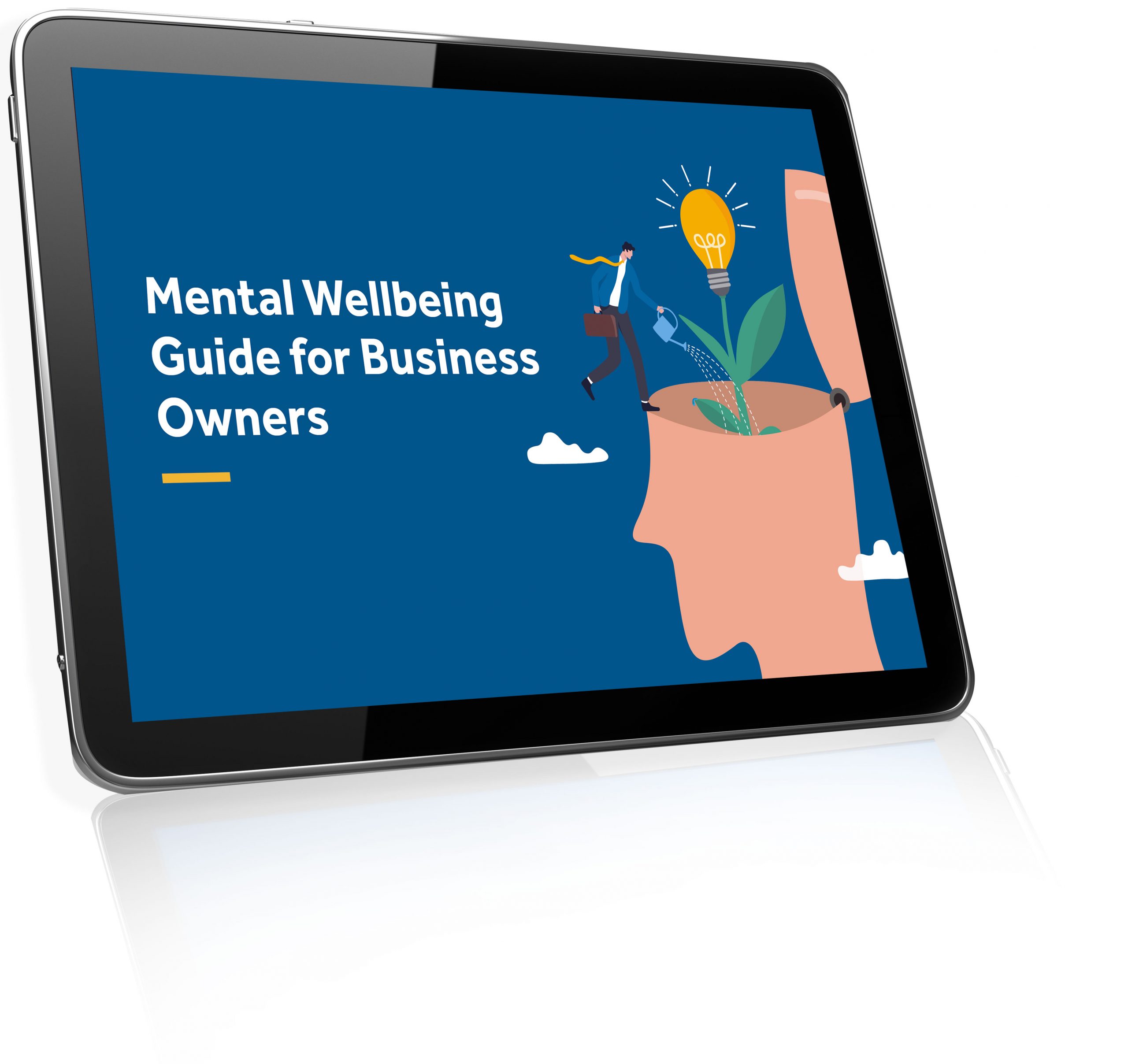
Australia’s Mental Health Month is celebrated each year in the month of October. The purpose of the occasion is to raise awareness about mental health issues and encourage all of us to take better care of our emotional and psychological well-being. This year’s theme “We all have a role to play” emphasises that everybody can play their part when it comes to creating environments that promote good mental health. Because most of us spend the majority of our time at work, our mental health tends to hinge on the support we receive in the workplace. As a small business owner, what can you do to create the right conditions and support workplace well-being?
Rather than sporadically implementing mental health initiatives, you should aim to build a holistic well-being culture that promotes mental health before it becomes a problem. If this sounds a little ambitious, here are 10 simple ways for you to create a well-being culture in your organisation.
1) Talk about mental health openly and honestly: You can destigmatise mental health by talking about it openly and honestly in the workplace. This could include sharing your own experiences, hosting workshops or training, or creating a company culture where it is safe to talk about mental health challenges.
2) Create a culture of compassion and understanding: A culture of compassion and understanding is one where employees feel supported and cared for, even when they are going through a rough patch. This means being understanding of mental health challenges, and providing employees with the resources they need to cope.
3) Offer flexible work arrangements: Flexible work arrangements can help employees to better manage their work-life balance, which can have a positive impact on their mental health. This could include allowing employees to work from home, set their own hours, or take breaks throughout the day.
☑
Case Study: Atlassian
Australian tech company Atlassian is known for producing some of the most innovative software on the market but is also leading the way when it comes to cutting-edge mental healthcare initiatives.
Founders and co-owners Mike Cannon-Brookes and Scott Farquhar are strong advocates for mental health in the workplace and far beyond. Atlassian’s mental health program offers all staff:
✔ Flexible work arrangements
✔ Paid mental health leave
✔ An online library of mental health resources
✔ A dedicated mental health team
✔ Free counselling sessions
✔ A well-being hub
✔ A ‘Mental Health Buddy’ program
✔ Annual mental health awareness events
✔ A mental health hotline
✔ On-site yoga and meditation classes
✔ Free gym memberships
While not every business will have the resources to promote mental well-being on this scale, it’s important to figure out what matters to your employees and implement the most impactful initiatives within your budget.
4) Provide access to mental health resources: Make sure that employees have access to mental health resources, such as counseling, therapy, or medication. This could be through your company’s health insurance plan, through an Employee Assistance Program, or through other resources in your community.
5) Encourage self-care: Encourage employees to take care of their mental health by practicing self-care activities, such as exercise, meditation, or spending time with loved ones. You could also offer wellness programs or workshops that teach employees about self-care.
6) Be authentic: Employees can spot a fake from a mile off, so only implement initiatives you genuinely believe in. You should consult staff to ensure any planned initiatives properly address their needs and then collect feedback surveys further down the track. Make adjustments to your initiatives as necessary and constantly look to improve the support your business offers. Remember – avoid tokenistic workplace well-being gestures!

Who’s looking out for you?
There’s a lot to be across as a business owner, from managing day-to-day operations, paying wages, dealing with rising business costs, hiring and managing staff, and ensuring you have the right processes and documents in place. Sometimes, it all gets a bit overwhelming. As well as taking care of business, it’s vital to have the tools and techniques to take care of yourself.
Download our Free Mental Well-Being E-Guide for Business Owners today!
7) Create a sense of community: A sense of community can help employees to feel connected and supported, which can have a positive impact on their mental health. This could be done by creating opportunities for employees to socialise, or by backing employee-led initiatives.
8) Be a role model: As an owner and leader, you set the tone for the company culture. If you want employees to take care of their mental health, you need to model that behavior yourself. This means taking care of your own mental health and being open about it with your employees.
9) Be patient and understanding: It takes time to change a culture, and it’s important to be patient and understanding as you work to create a workplace that supports mental health. Be willing to listen to feedback, and make changes as needed.
☑
Case Study: Sheryl Sandberg – Chief Operating Officer, Meta
Sheryl Sandberg, COO of Meta, published “Option B: Facing Adversity, Building Resilience, and Finding Joy” in 2019, describing how she recovered from depression following her husband’s death in 2015.
Sandberg’s book has had a ripple effect. Quotes from her book have gone viral, and blogs and discussion boards have been filled with heartfelt responses from people who have experienced similar difficulties.
Sandberg’s openness about her mental health has inspired others and helped to reduce the stigma associated with depression. By sharing her story, she has shown that mental health issues don’t define a person, and that even the world’s most successful people face tough times.
Want to inspire others with your story? Here are some specific ways you can share your experiences with mental health:
✔ Give a talk or presentation about your journey
✔ Share your story on social media
✔ Write a blog post or article about your experience
10) Celebrate successes: Last but not least, when employees take steps to nurture their mental health, be sure to celebrate their successes. This will show them that you value their well-being, and that you are committed to creating a mentally healthy workplace.
There you have it – 10 simple things business leaders can do to inspire a culture of workplace well-being. By taking these steps, you can create an environment where employees feel supported and cared for, and where they can thrive both professionally and personally.
At Employsure, we pride ourselves on supporting businesses and the people running them. Our trained experts are on hand 24/7 to help you understand your mental health obligations and can provide tailored mental health policies.
Call our FREE Advice Line on 1300 651 415 to find out how we can help you make your workplace happier, healthier and more productive.
Please note that this is general information and does not constitute as advice. If you need help, please consult a medical professional.
